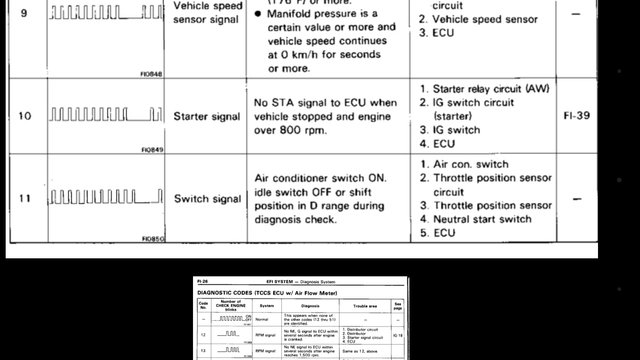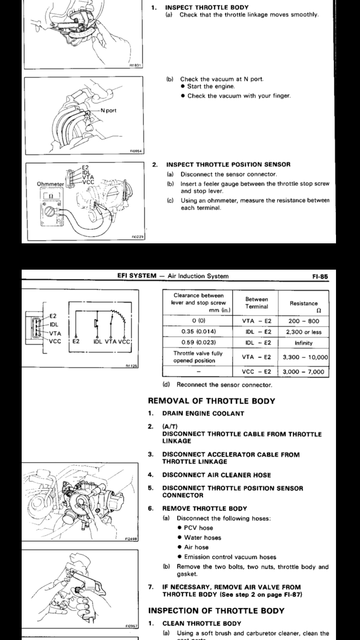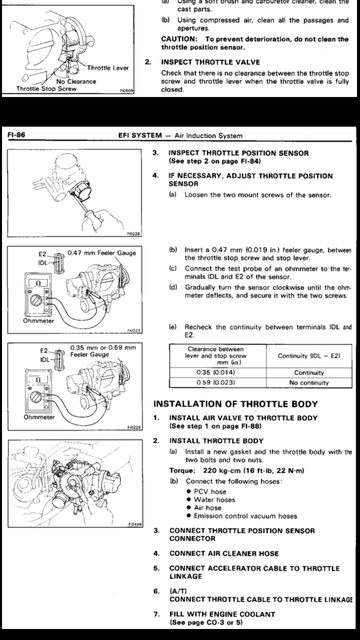TOYOTA TPS Part #: 89452-28010
All testing was done with tb assembly off the car.
Initially, I checked the resistance specs between tps terminals from the chart in the service manual, and all were to spec except IDL-E2 w/ 0.35 mm feeler (no continuity).
Then I followed the manual's adjustment procedure. Between IDL-E2 I now have continuity when testing w/ 0.35mm feeler, and no continuity w/ 0.59 mm feeler.
However, when I go back and test resistance measurements between tps terminals - like I did at the start - IDL-E2 w/ 0.35mm feeler is out of spec. There is continuity (14k ohms), but listed range is 2.3k or less. I tried a few times, and it was the lowest I could get that specific resistance measurement without any of the others being out of spec.
Is this normal operation?
Any thoughts or insight? I haven't put it back on the engine yet.
EDIT: I also added service manual screenshots below for reference.



